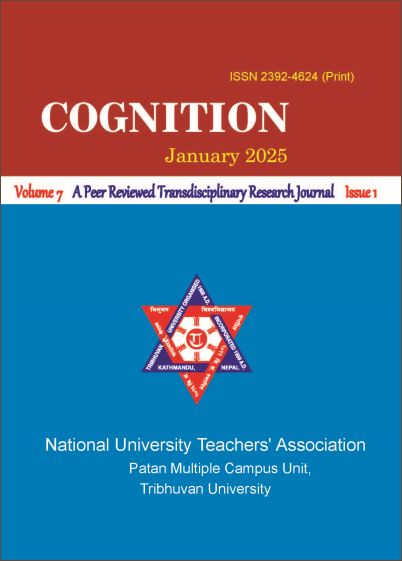An Analytical Study on Political Patronage Corruption in Nepal
DOI:
https://doi.org/10.3126/cognition.v7i1.74767Keywords:
Corruption, Development, Governance, Institutions, Nepal, Patronage, PoliticsAbstract
This paper delves into Nepal's intricate political patronage and corruption landscape, focusing on its historical context, driving factors, and implications. The study examines the evolution of patronage and corruption, tracing its roots to the Rana and Panchayat regimes and highlighting how these systems nurtured patronage networks. The key results suggest that lack of political stability, poverty, transparency and accountability, and weak institutions are the leading causes of corruption. On the other hand, corruption leads to economic decline and undermines citizens' trust in the political system. Patronage networks only strengthen this process, with politicians trading votes for positions, leading to a culture of corruption and underpinning meritocracy. Despite anti-corruption measures like the Right to Information Act and the Commission for the Investigation of Abuse of Authority (CIAA), challenges persist due to political interference and enforcement deficiencies. Addressing these deeply entrenched issues is crucial for Nepal's
progress and development.




